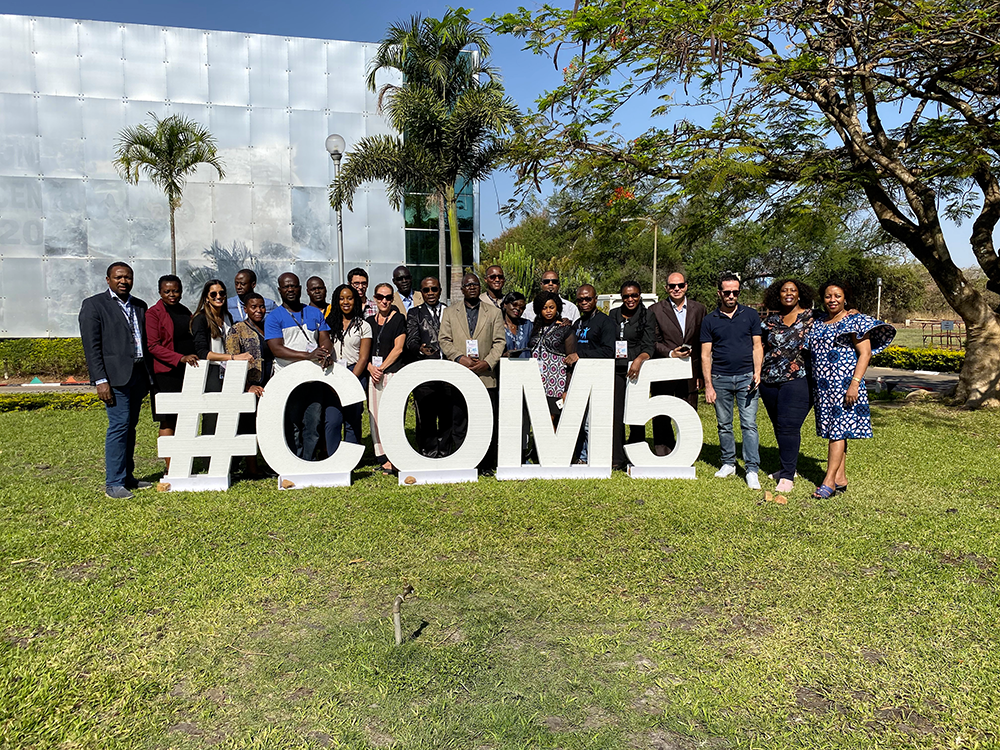
By James Mwanza, Senior Program Officer for Civil Registration and Vital Statistics Program at Vital Strategies
Advances in epidemiology and technology mean that for the first time, counting every human life is possible.
Properly functioning Civil Registration and Vital Statistics (CRVS) systems exist to register and count every human life. The benefits to governments are well-established; for example, this information provides a clear picture of population trends and causes of death and disease in their countries, allowing for informed decision-making about how to direct critical resources. While these critical benefits of a strong CRVS system may not be apparent to the general public, countries across Africa are changing this by thoughtfully engaging their populations and ensuring that CRVS services benefit every citizen.
In Rwanda, an annual CRVS Awareness Week engages local government and residents alike to increase their understanding of the importance of a well-functioning CRVS system, namely more complete notification and registration of births and deaths, a reliable depiction of leading causes of mortality, and transforming that data into consequential action affecting all citizens. As part of the annual observance, print and radio advertising drew residents to CRVS facilities, where services were provided throughout the week to people who may have missed standard registration deadlines in place throughout the year.
The week also serves as a time to take stock of the country’s performance on civil registration, culminating in an award ceremony for the government district that can report the most complete CRVS data for the year. Factoring into the competition are considerations that speak to the effectiveness of each district’s CRVS facilities: proper staffing, availability of useful information for residents, the amount and quality of engagement undertaken with local communities and leaders.
The result is an enthusiastic competition over a considerable monetary reward, heightened public interest and better service delivery. In 2018, this translated into significant gains in birth, death and marriage registrations across the country on CRVS Day; this year saw gains over the previous year in discrete regions, such as a 50% increase in registered births in Gisagara District and an increase in registered marriages measuring 69% in Kayonza District, 141% in Karongi District and 48.6% increase in Gakenke District, among others. Taken together, these successes amount to a self-sustaining mechanism by which to encourage families to report their vital events year-round.
Rwanda’s CRVS Awareness Week is part of a larger regional effort to improve public awareness of well-functioning registration systems as a means to make all residents visible. The African Union established August 10, 2018 as the first annual African CRVS Day, encouraging all member states to commemorate it with a week-long program of activities. For this year’s observance in Tanzania, for example, Dr. Augustine Philip Mahiga, Minister of Constitutional and Legal Affairs, made an appearance on a popular talk show on national radio station Tanzania Broadcasting Corporation. Listeners’ calls into the station indicated that Dr. Mahiga’s direct connection between CRVS and issues of health was well-received by audiences nationwide and underscored the country’s outreach up to now.
Representatives from across the region recently gathered in Lusaka, Zambia to discuss these and other innovations in CRVS at the Fifth Conference of African Ministers Responsible for Civil Registration (COM5). The biannual forum sets policy recommendations for the accelerated improvement of CRVS systems across the continent; a main outcome this year focused the recognition of CRVS system integration with other national registries for universal improvement of registration.
Another outcome of COM5 was the establishment of an African network of CRVS journalists, a direct result of a training held in parallel to the conference by Vital Strategies’ Data for Health Initiative and partners such as the UN Economic Commission for Africa. Because of the technical nature of CRVS, the training module concentrated on removing barriers and demonstrating to journalists where they can access CRVS information, how to analyze it, and how to accurately report on this data as a way to engage the public and hold their country’s institutions accountable.Honing this group of voices and aligning them under one network provides immense opportunity to change the regional narrative on CRVS and engage communities across the region in CRVS improvements.
Occasions for community outreach remain a key component of a robust CRVS system. Without this engagement, policies designed to improve the lives of entire populations could go unused due to lack of knowledge or mistrust of the system. Countries across Africa are taking action to address this challenge head-on, tapping into an annual commemoration to host dynamic events, engage in community outreach and remove barriers to CRVS services. Examples from Rwanda, Tanzania, and Zambia demonstrate that government, communities and journalists can together ensure that as our global population grows, no one is left behind.
Read more from the journalists at COM5:
- VOA News: UN: Half of African Children Are Unregistered
- The New Times: Africa seeks innovative ways for civil registration
- The Herald: JUST IN: Civil Registration conference starts
- Ahram: Lusaka Declaration calls for activating and supporting African civil registration and vital statistics systems to achieve 2063 development goals
Counting the Uncounted is a blog series that examines topics related to civil registration and vital statistics. The blog series is a part of the Bloomberg Philanthropies Data for Health Initiative. The views expressed are not necessarily those of Bloomberg Philanthropies. Partners in the Initiative include: WHO, the U.S. Centers for Disease Control and Prevention (CDC) and the CDC Foundation, the University of Melbourne, and Johns Hopkins University’s Bloomberg School of Public Health. For more information visit: Bloomberg Philanthropies Data for Health Initiative.